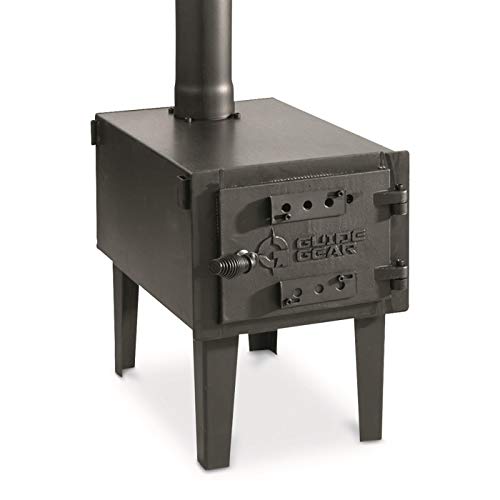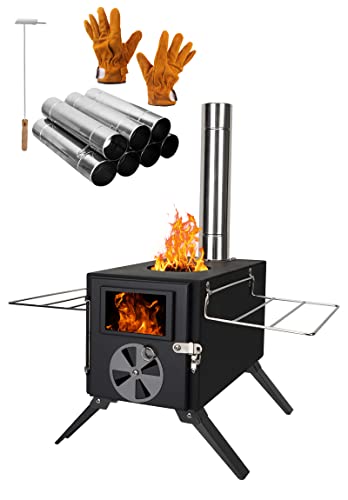Do You Know How To Explain Wood Burning Stoves To Your Mom
페이지 정보

본문
 Wood Burning Stoves Near Me
Wood Burning Stoves Near Mesmall wood burning stove stoves are beautiful and efficient way to heat your home. When buying a new stove, there are a few aspects to take into consideration. They include EPA-certified energy efficiency, price and maintenance requirements.
Avoid becoming "number-bound" and basing your decision on a certain rating or BTU output. You should also consider aesthetics, suggestions from an reputable retailer and feedback.
Cost
Wood stoves can add a classy and elegant accent to any house. They are available in a broad range of colors and styles to complement any style. They are a great alternative to expensive heating systems. They are also energy efficient and cost-effective. There are several aspects to take into consideration before buying the latest wood-burning stove. Included in this are the initial cost as well as the installation costs and any additional costs, like chimney liner.
The price of a wood woodburner stove depends on the type and size you choose. You can find a freestanding burner for less than PS700. The stove features a huge viewfinder which is kept clean by a powerful airwashing system. It's multi-fuel, meaning it can burn a variety of fuels.
Noncatalytic wood stoves are much less expensive than catalytic models, but they can be difficult to ignite and require more fuel to produce the same amount of heat. They also release more particulate matter into air than catalytic stoves. Despite these drawbacks the noncatalytic stove is a reasonable option for many people.
Pellet stoves are another well-known alternative to traditional wood burning stoves. They work in a similar manner, but they use smaller wood pellets or recycled materials to create the heat and fire. They are less difficult to maintain, but they don't produce as much heat.
Whether you're choosing a pellet or wood stove you'll need to take into account the cost of installing a venting system. The majority of wood stoves require a vent system that connects to a chimney. However, others require an intake for combustion air outside. You may need to have your wood stove inspected by local building inspectors depending on the location you live in and the building codes that are in force in your region.
Installing a wood stove in an existing fireplace will cost less. You'll have to install a chimney liner and you might need hire a professional to clean the chimney regularly. Additionally, a freestanding cheap wood burner stove can't be able to reach all rooms of an apartment with multiple floors, which means you'll need to put in radiators in other rooms to add the heat.
Energy Efficiency
Many homeowners are looking for alternatives to traditional heating systems as the price of electricity and natural gas continues to rise. Wood stoves can be an economical and green alternative to traditional heating systems. They also burn cleaner, which reduces the amount of air pollution.
Modern wood-burning stoves are extremely efficient in energy use, which means they produce more heat in your home while using less fuel. This is due in part to the fact that modern wood burning stoves have smaller combustion chambers as compared to older models. They also use an acatalytic combustor which allows them to burn fuel more efficiently. They also emit less harmful emissions, which can be important when you live in an region where stricter standards for air quality are required.
Another reason log burners are greener than traditional open flames is that they permit you to regulate the amount of air supplied to the fire, to allow it to burn at a lower temperature for longer. This can reduce the amount of smoke produced by the fire and also reduce the accumulation of flammable creosote within your chimney.
Burning a variety different types of wood, including reclaimed and scrap wood, will produce a more effective fuel mix, which will lower the amount of waste gases generated by the burning. You can also burn unwanted wood that was dumped in building projects. By doing this, you can cut down on the cost of purchasing firewood and help to save our forests.
As a renewable resource, wood is a carbon neutral fuel source. The trees absorb carbon dioxide throughout their growth and release it when they burn and create an environmentally sustainable cycle of life. By purchasing local wood, you will also help the local economy while reducing the environmental impact of your business.
A wood-burning fireplace can also be utilized as a backup source of heat in the event that there is a power loss. It is possible to keep your home warm for several days when you have enough logs. You can also use your stove to heat water and cook food.
Environmental Impact
Based on the type of best wood burner stoves used and the efficiency with which it is burned, using a wood stove could result in negative health and environmental effects. The burning of wood produces harmful gases like nitrogen oxides and carbon monoxide, as well as fine particles referred to as PM (particulate material). The PM in smoke is composed of a range of harmful substances that include black carbon, tar and soot. These contaminants are known to cause range of health issues like asthma and heart disease.
The fumes from wood-burning stoves can be harmful to the environment and health. In addition, burning wood can cause the release of volatile organic compounds (VOCs), which are a major source of VOCs in the indoor air. VOCs, a kind of pollution, have been linked to a variety of health issues, including headaches and irritation of the eyes.
VOCs are created by the incomplete combustion of wood. They can harm the respiratory tract, lungs, and circulatory system. They can also contribute to a number of environmental problems such as erosion of soil and loss of biodiversity as well as water quality. In some regions the levels of VOCs in wood smoke may exceed federally enforceable standards.
According to a report by Undark Five states have provided incentives to replace older wood-burning models with EPA certified models. However, many of these stoves are only marginally better than the older models. Additionally, they are costly and require electricity to run controls, fans, and pellet feeders.
Consequently, some environmental agencies have resorted to removing incentives to encourage new wood stoves in favour of encouraging people to switch to alternative sources of heating. The State of Oregon for example requires homeowners to take down non-certified wood-burning appliances and encourages homeowners to switch to heat pumps.
Wood stoves are more energy efficient than other heating methods, such as electric or gas furnaces. They generate a higher amount of heat with less wood than gas or electric counterparts. They are therefore more sustainable and a cheaper choice for home heating. They should be maintained and checked regularly to cut down on fuel consumption and improve efficiency. By removing the hoppers and feed system at the end season, you can reduce the risk of rust and ensure that your stove is ready to go into operation in the autumn. In addition regular cleaning of the flue vents on your stove will prevent flammable creosote buildup.
Safety
Wood-burning stoves are a great option to heat, however they can be risky for the safety of your family. Smoke inhalation is a risk for fires and carbon monoxide poisoning and other serious problems. However, you can safeguard your home and family by following the correct safety precautions.
Make sure that your stove is properly installed and venting. A qualified professional should install your chimney, flue pipe, and connecters. Make sure the chimney is at least three feet above everything that could spark, including overhanging trees and adjacent structures. Install CO and smoke detectors in every bedroom and on every level of the house. Connect them all in such a way that they sound in the event that one goes off. Check your alarms regularly and replace batteries. Keep combustibles, like paper, garbage, plastics, and plastics away from your stove and don't burn them near or on it.
Never leave a wood-burning stove unattended, especially at night. If your stove is located in a room that contains sleeping areas, close off the wood-burning heat and open the windows before you go to bed. This will prevent smoke from the wood stove from entering your home and causing CO poisoning.
If you're planning to make use of a wood-burning fireplace you should consider installing an air-cleaning system. These systems neutralize and absorb volatile organic compounds in the exhaust air stream before it exits the fireplace. It is also important to keep your stove clean and keep the draft louvers free of ash and debris.
Wood smoke is harmful to everyone, but especially dangerous for children and older adults who suffer from weak lung function. It can also trigger respiratory illnesses and asthma. Avoid using wood stoves on days when air pollution levels are high. The EPA and the individual states provide daily reports of air quality.
Certain modern wood stoves are more efficient than older models, but they release large quantities of pollution into the air. Select a stove that has been endorsed by the EPA as being over 72 percent efficient, to reduce your exposure. Also, burn only dry and seasoned wood. This kind of small wood burning stove uk generates more heat and less toxic substances than fresh green wood.

- 이전글How To Tell The Good And Bad About Lost Car Keys Replacement 25.01.10
- 다음글You'll Never Be Able To Figure Out This Trucking Lawyers's Secrets 25.01.10
댓글목록
등록된 댓글이 없습니다.